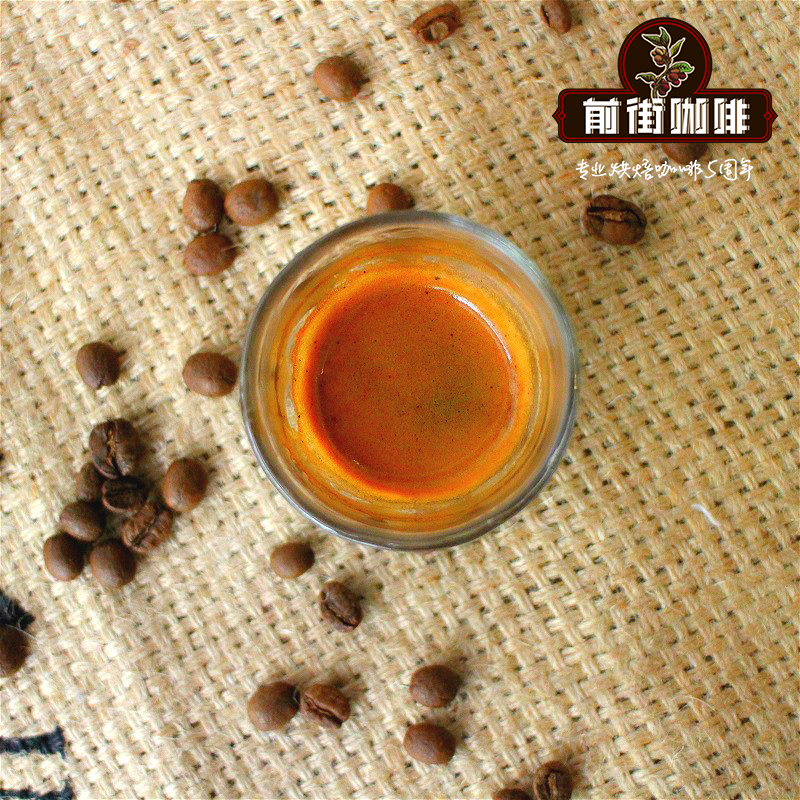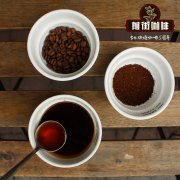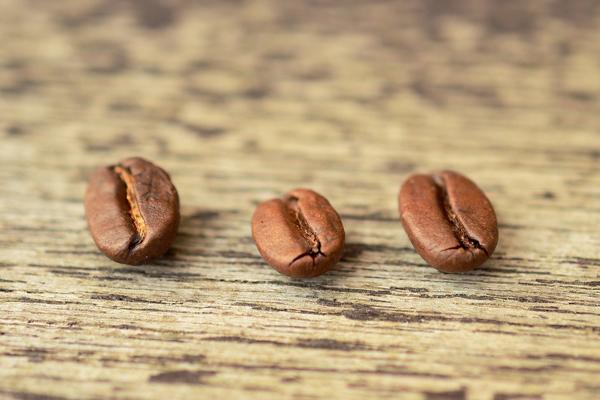Are you worried about coffee causing cancer? Spending some time making your own coffee can reduce the risk of cancer!

Professional coffee knowledge exchange more coffee bean information please follow the coffee workshop (Wechat official account cafe_style)
Sleep managers have a lot of friends who are fond of coffee. Are you one of them? Some people used to say that you should drink less coffee because it can cause cancer. But you know what? On June 15 this year, the International Agency for Research on Cancer (International Agency for Research on Cancer, referred to as IARC) issued a consensus to wash away the grievances of coffee and classify coffee as a substance that "fails to classify it as carcinogenic to humans." Today, the sleep manager will lead you to understand what's going on in the process.
Slide2 on June 15 this year, the International Agency for Research on Cancer (International Agency for Research on Cancer, referred to as IARC) published in the journal collateral Needle Oncology (the Lancet Oncology) a working group of 23 scientists from 10 countries to re-evaluate the carcinogenicity of coffee based on more than 1000 observational and experimental studies.
After this assessment, the International Agency for Research on Cancer put forward the following consensus:
1. Coffee: substances that were originally "or may be carcinogenic to humans" (group 2B) to "failed to classify their carcinogenicity to humans" (group 3)
two。 Cream: from "drinking hot cream" to "possibly causing cancer to human" (group 2A) to "drinking milk essence" to "failing to classify its carcinogenicity to human" (group 3)
Plus:
3. "drinking hot drinks above 65C" ── "may cause cancer in humans" (group 2A)
Does this mean that you can generously use coffee as a refreshing drink? Get ready to cheer! 🎉🎉🎉)
Wait, before cheering, the sleep manager wants you to know the difference between the past and the present, and let you know the results of coffee research over the past two decades.
It is mentioned in the aforementioned IARC consensus:
In 1991, the International Agency for Research on Cancer classified coffee as "possibly carcinogenic to humans" (group 2B) based on the association of bladder cancer in case-control studies and limited evidence of carcinogenicity in animal experiments.
From the IARC consensus article, sleep managers summed up three points, which is why the IARC consensus overturned the past:
1. Scientists (in particular) reviewed studies on the confusing effects of controlling tobacco and alcohol use (to put it simply, using statistical methods to remove the effects of simultaneous use of tobacco and alcohol). It was found that the association between coffee drinking and bladder cancer was inconsistent, and the results in mouse experiments (whether in promoting tumor or preventing cancer) were inconsistent.
two。 Scientists have found that the use of coffee helps reduce the risk of cancer
3. Some studies have also shown that coffee has antioxidant effect.
Based on the above and other results, IARC adjusted coffee to a substance that "failed to classify its carcinogenicity to humans" (group 3).
In addition, in 1991, IARC originally defined "drinking hot cream" as "possibly carcinogenic to humans" (group 2A)
In this consensus, IARC is also based on:
1. There is no significant association between cold cream and esophageal cancer.
two。 Drinking cream is only related to the carcinogenicity of esophageal cancer at high temperature.
3. Research results related to the temperature of beverages and esophageal cancer
The original classification was adjusted to "──" failed to classify its carcinogenicity to humans (group 3) and "drinking hot drinks above 65C" ── "may be carcinogenic to humans" (group 2A).
To put it simply, cream is not the culprit, the one that hurts you is drinking hot water!
To sum up briefly, the latest consensus of IARC (2016):
Coffee: substances adjusted to "fail to classify their carcinogenicity to humans" (group 3)
Cream: substances adjusted to "fail to classify their carcinogenicity to humans" (group 3)
Plus:
"drinking hot drinks above 65C" ── "may cause cancer in humans" (group 2A)
For you who love coffee, you breathe a sigh of relief? This is the case with scientific research, and past conclusions will gradually be overturned with the accumulation of research evidence, but similarly, if key causes of cancer are found in the future, the current conclusions may also be overturned.
Don't drink too hot water, it seems to need to pay attention to!
In Germany, people often pay attention to acrylamide in French fries and potato chips, but coffee is indeed a more common product of acrylamide. Acrylamide cannot be completely avoided in food because it is produced during heating unless people completely give up fried, barbecued and baked foods. Rampong said that acrylamide is produced when certain sugars and proteins are at high temperatures. Animal experiments on mice have shown that it may cause cancer. For humans, the latest German research shows that the human body is born with part of acrylamide, which is superimposed by acrylamide in the external environment. Whether it can cause cancer depends on the type, time and amount of harmful substances ingested. In addition, the natural repair mechanism of the human body is also a related factor. This repair ability weakens with age.
Academic research can never prove that a person's cancer is caused by ingestion of acrylamide, but what the study can show is that eating too much of the substance over a longer period of time increases the statistical risk of cancer, Rampone said.
The expert said that if coffee beans are roasted too strongly or for too long, in some cases, the content of acrylamide per kilogram of coffee powder may exceed 600 micrograms. Overall, instant coffee has a higher content than ground coffee.
1. Take some time to make coffee and avoid instant coffee
Although instant coffee is fast and convenient, it actually has a high content of acrylamide. By contrast, self-brewed coffee contains very low levels of acrylamide.
2. Replace coffee with tea
The easiest way to avoid acrylamide is to replace refreshing drinks. Raw tea made from low temperature drying is a good choice.
3. The acrylamide content of deep-roasted coffee is lower than that of light-roasted coffee.
Studies have shown that deep-roasted coffee contains less acrylamide than light-roasted coffee, so try deep-roasted coffee for coffee.
Important Notice :
前街咖啡 FrontStreet Coffee has moved to new addredd:
FrontStreet Coffee Address: 315,Donghua East Road,GuangZhou
Tel:020 38364473
- Prev

Do you still believe that coffee causes cancer? Listen to what foreign experts say--
Professional coffee knowledge exchange more coffee bean information please follow the coffee workshop (Wechat official account cafe_style) A judge in California ruled that Starbucks and other merchants should mark their products: contain acrylamide. This is a chemical that may cause cancer. German media quoted experts as saying that the European Union has regulations on acrylamide content, and German coffee manufacturers generally comply with the regulations.
- Next

Healthy drinking Coffee | how to judge the freshness and preservation methods of coffee
Professional coffee knowledge exchange more coffee bean information Please pay attention to the coffee workshop (Wechat official account cafe_style) generally drink bitter heavy-roasted coffee, want to add sugar, enjoy the sweet taste; light roasting is sour, but also add cream, cream balls, sugar and other seasoning. These additives will spoil the coffee and cause various burdens on the body. The editor prefers the golden mean.
Related
- How did the Salvadoran coffee industry develop in Central America?
- What exactly does the golden cup extraction of coffee mean?
- The Origin of Coffee flower
- [2023 Starbucks World Earth Day] there are more meaningful things besides free Starbucks coffee!
- What kind of coffee is there in Spain? 9 Flavors of Spanish Coffee
- Aromatic African coffee| Kenya's coffee culture and historical production area
- Liberica Coffee Bean knowledge: the characteristics of Liberian Coffee beans of the three original species of Coffee beans
- The origin and formula of Spanish latte introduces the taste characteristics of Bombon coffee in Valencia, Spain.
- How to adjust the solution of over-extracted coffee
- What is the tasting period of coffee beans? What is the period of coffee and beans? How should coffee wake up and raise beans?

